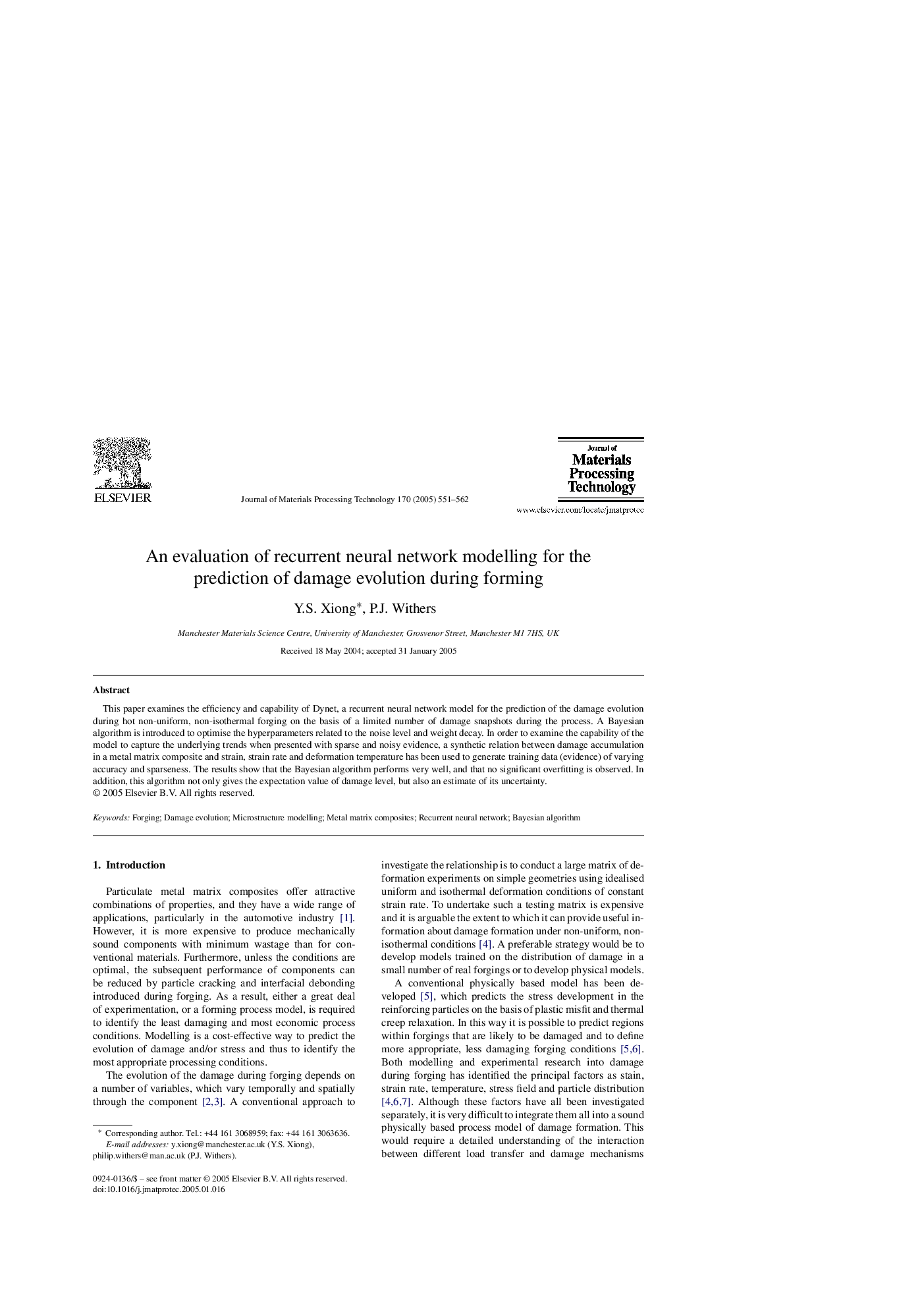| Article ID | Journal | Published Year | Pages | File Type |
|---|---|---|---|---|
| 9708806 | Journal of Materials Processing Technology | 2005 | 12 Pages |
Abstract
This paper examines the efficiency and capability of Dynet, a recurrent neural network model for the prediction of the damage evolution during hot non-uniform, non-isothermal forging on the basis of a limited number of damage snapshots during the process. A Bayesian algorithm is introduced to optimise the hyperparameters related to the noise level and weight decay. In order to examine the capability of the model to capture the underlying trends when presented with sparse and noisy evidence, a synthetic relation between damage accumulation in a metal matrix composite and strain, strain rate and deformation temperature has been used to generate training data (evidence) of varying accuracy and sparseness. The results show that the Bayesian algorithm performs very well, and that no significant overfitting is observed. In addition, this algorithm not only gives the expectation value of damage level, but also an estimate of its uncertainty.
Keywords
Related Topics
Physical Sciences and Engineering
Engineering
Industrial and Manufacturing Engineering
Authors
Y.S. Xiong, P.J. Withers,
